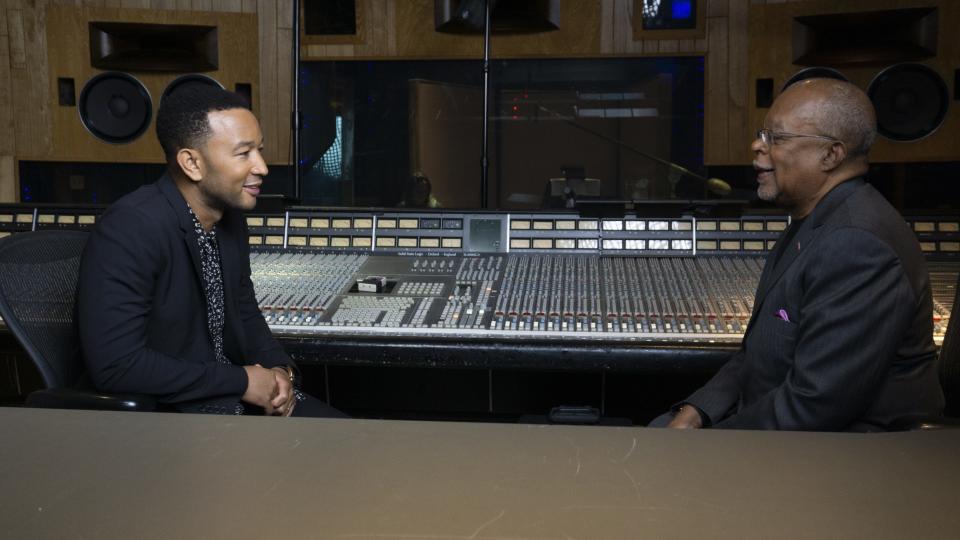PBS' Black church documentary celebrates hope, strength amid oppression, with plenty of music

Before Henry Louis Gates Jr. spoke to music stars John Legend and Yolanda Adams for a PBS project on the Black church in America, he was warned not to ask them to sing. It wasn't part of their interview agreement.
"I said OK, (but) the whole time I had to I figure out how I could get around this," Gates says of interviews conducted for the four-hour documentary, "The Black Church: This Is Our Story, This Is Our Song" (airing Tuesday and Wednesday, 9 EST/PST; check local listings).
He evaded the prohibition by innocently asking about their first choir solos. When they named their song titles, he feigned ignorance.
'I go, 'I don't know how that goes. Would you mind singing it?' " he said in a playful, conspiratorial tone. They did, adding a treat to the two-night presentation.

Music plays a central role in the Black church and the documentary, which features interviews with Legend, Adams, Jennifer Hudson, BeBe Winans and Pastor Shirley Caesar. It also inspired the title, as "This Is Our Story, This Is Our Song" is a slightly altered lyric from the 1873 hymn, "Blessed Assurance."
Decision maker: How Oprah picked the title for PBS documentary on the Black church in America
As closely associated as music is with the Black church, it's just one part of an examination of the religious, political and cultural institution's 400-year history in America that also features interviews with Oprah Winfrey, Bishop Michael Curry, the Rev. Al Sharpton, the Rev. William Barber II and the Rev. Raphael Warnock, the newly elected U.S. senator from Georgia.
Gates, the host of PBS' "Finding Your Roots" and a Harvard professor, says the documentary's message of "race and resilience, struggle and redemption, hope and healing" resonates deeply after the events of 2020, which saw the deaths of George Floyd, Breonna Taylor and other Black people at the hands of police officers and a higher rate of COVID-19 hospitalizations and deaths among people of color, including the Black community.

Legend, who says his exposure to music as a child at his Pentecostal church in Springfield, Ohio, inspired his singing career, says the Black church has long been a bulwark in tumultuous times.
"Learning about the resilience and the community that was built in the Black church is an essential part of us understanding how Black folks have made it this far in this country when there were so many forces that were conspiring against us doing so," says Legend, who also is an executive producer. "I do believe that there's something about all the struggle and the suffering that Black folks have had to endure. So much of the way we've interpreted the Bible and so much of the way we've embraced it has been about the struggle."
More: Black History Month TV guide: 10 shows that'll teach you a thing or two about the Black experience
"The Black Church," which goes back hundreds of years to explore the Islamic, Christian and traditional-religion roots of Africans before they were enslaved in America, details how a "religious foundational stew" evolved into a distinctive Christian entity in the U.S., Gates says. In the process, it gave congregants needed hope during the brutal oppression of slavery and Jim Crow and the country such leaders as abolitionist Frederick Douglass and the Rev. Dr. Martin Luther King Jr.

"Often, religion is dismissed as being otherworldly, but Black people clung to the church so they could believe in the future of their descendants here on Earth, that by and by there would be a better day, by and by your grandchild would be free, your great?grandchild would be free," Gates says.
Religious belief, including knowledge of Jesus Christ's concern for the downtrodden, has provided an inner strength across generations, says Adams, a gospel legend.
"One of the things that I believe with the slaves and former slaves, they knew that there was something on the inside of them, some type of power that would get them past their present moment," she says. "So that is why we as African Americans hold on to our faith, no matter what it is, really strong."

The documentary notes flaws in the church, including a male-dominated leadership presiding over a largely female membership and a history of homophobia. However, it mostly celebrates an institution that remains relevant today, Gates says, describing his experiences at summer services on Martha's Vineyard as "a circle of warmth."
Such religious gatherings are "a celebration of our culture, our history, of who we are, of how we got over, how we survived the claustrophobic madness of hundreds of years of slavery and then a century of Jim Crow and then anti-Black racism that we saw manifest itself at the capital in the last four years under Donald Trump and in the Capitol on Jan. 6," he said. "It's that I want to celebrate – in an honest way."
This article originally appeared on USA TODAY: PBS documentary examines 400 years of the Black church in America